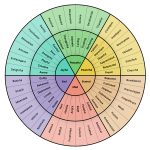
In a rapidly digitizing global economy, few regions are as ripe for fintech disruption as the Middle East. For Dr. Abbas Sharif Alaskari—professor of International Trade Finance at Khalifa University and a strategic advisor to fintech startups at Abu Dhabi’s Hub71—cross-border payment innovation is not just a technical evolution, but a catalyst for regional integration, SME empowerment, and ethical globalization.
The Case for Cross-Border Payment Reform
Traditional cross-border payments in the Middle East remain slow, expensive, and opaque, often relying on legacy infrastructure and intermediaries. For small- and medium-sized enterprises (SMEs), this translates to high transaction fees, delays, and restricted access to global markets.
Dr. Alaskari points out that “in a region where trade ambitions are high, our payment systems should not be holding us back. We need frictionless, real-time, secure alternatives that serve both large corporates and small businesses alike.”
Fintech as a Game-Changer
According to Dr. Alaskari, the region is seeing a rising wave of fintech startups that are tackling this challenge head-on—leveraging blockchain, artificial intelligence, and API-based systems to offer smarter, faster, and more transparent solutions.
From real-time currency conversion to smart contracts that automate trade settlements, these innovations are being piloted across the UAE, Saudi Arabia, and Bahrain. Many of these startups, mentored by Dr. Alaskari at Hub71, are built with scalability in mind—ready to link the Middle East to Africa, South Asia, and beyond.
Regulatory Innovation is Key
Yet, the success of these technologies depends on harmonized regulations and open collaboration between central banks, private platforms, and trade authorities. Dr. Alaskari advocates for a “sandbox-to-scale” approach—where startups can test payment innovations in a regulatory sandbox and then receive structured support to expand.
“The UAE Central Bank has taken promising steps,” he notes, “but what we need next is a GCC-wide framework that facilitates cross-border payment innovation while upholding anti-money laundering (AML) and data privacy standards.”
The Ethical Angle
Always an advocate for value-driven systems, Dr. Alaskari emphasizes that cross-border fintech must be built with ethical considerations at its core. For him, this includes protecting consumer data, ensuring fair pricing, and building solutions that serve underserved populations—particularly migrant workers and micro-entrepreneurs.
“Inclusivity is not a bonus—it’s a necessity. Ethical fintech is the future of trade finance,” he asserts.
Looking Ahead: The Road to 2030
Dr. Alaskari envisions a 2030 horizon where the Middle East operates a unified digital trade infrastructure, powered by fintech, where payments cross borders as easily as text messages. In this future, SMEs, startups, and even artisans benefit from global commerce without facing systemic financial exclusion.
But getting there requires more than tech—it needs trust, collaboration, and vision.
Conclusion
At the intersection of policy, technology, and ethics, Dr. Abbas Sharif Alaskari continues to shape the fintech discourse in the Middle East. His work is a reminder that innovation in trade finance is not just about speed—it’s about equity, access, and long-term resilience.
As he puts it: “If we can move money with purpose, we can move societies forward.”











Leave a comment